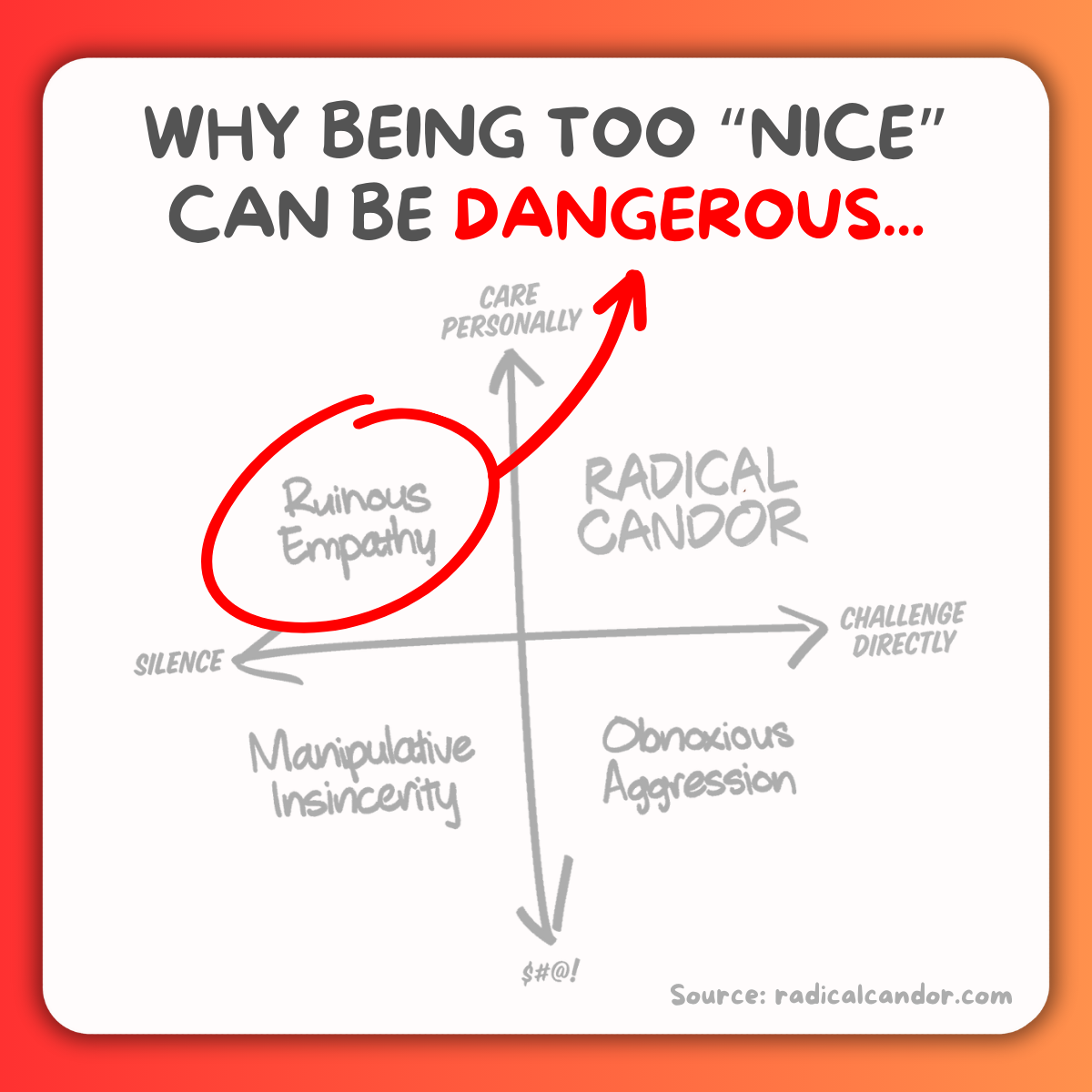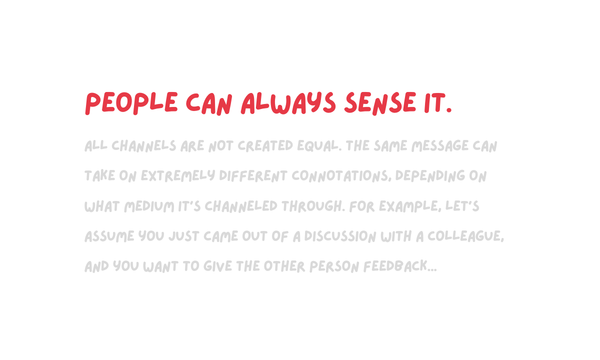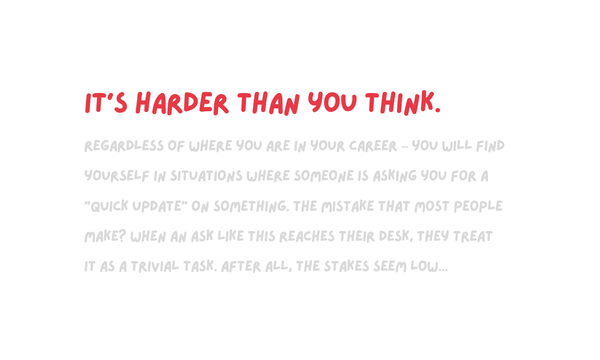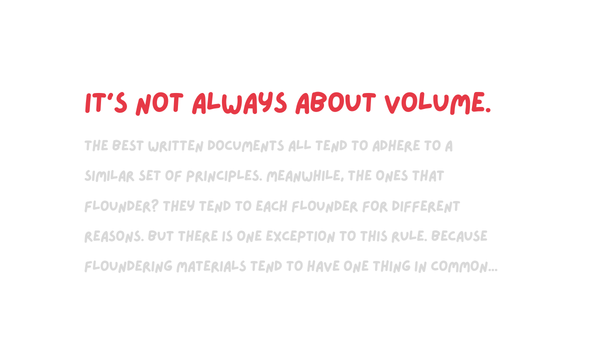🚨 Being Too Nice Can Be Dangerous.

🚨 Being too nice can be dangerous and harmful.
That’s what I learned from Kim Scott’s “Radical Candor” framework.
You see, giving constructive feedback is hard.
You don't know if you’ll hurt someone’s feelings.
And so, you stay silent. You smile and move on.
You avoid tough convos to spare their feelings.
You might even engineer false praise.
⚠️ Unfortunately, this is called Ruinous Empathy.
It is not only unproductive, but also dangerous. Here’s why.
For one, you prevent people from getting the feedback they need to improve and grow.
You’re not doing the person a favor.
You’re coddling them.
You're hurting them.
Secondly: you leave key problems unaddressed.
Problems compound, which lead to bigger problems down the line.
So in short: yes, you were nice.
But you were NOT helpful.
And when you’re not helpful: People suffer. Teams suffer.
Don’t be too nice! Be radically candid instead.
For more on this:
🎥 Watch the TED talk:

📖 Or read the book:




